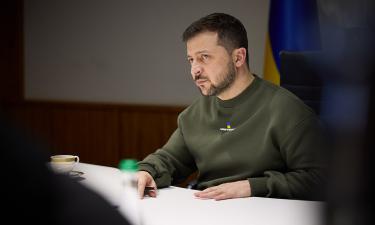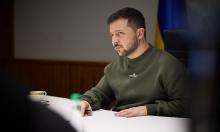Redistribution of Property: Plundering or Public Agreement?
Any redistribution does not guarantee any improvement, of course
Russian electronic mass media have been recently discussing the redistribution of property and possible consequences of such a measure. Well-known Russian politicians have been appearing on central television channels to conduct very vivid debate on the issue. All these discussions are different in their form, but they all are devoted to the opportunity of the property redistribution and possible consequences of such a step for every citizen and the country on the whole.
Those who defend the status quo say that everything will be taken away from everyone, no one will have any gains, it will be a disaster for the whole nation. Their adversaries say that it will be the retrieval of justice, although there is no precise definition of justice. For example, oligarchs believe that it is fair to spend their millions as they wish: they earn them and they can spend them regardless of what consequences it might lead to. Their critics do not suggest any mechanisms to use the property more efficiently - they just continue saying that the natural wealth belongs to people.
One should recollect the nature of property in order to make the situation clear. One should bear in mind that property is not the combination of personal assets and real estate. It implies relations between people, first and foremost. It is a rule, according to which a certain individual has a right to own and handle a certain share of the national wealth. The natural wealth is created with everyone's labor. A self-taught person used to manufacture a product and pronounce it a product of his or her own. This time passed long ago. Nowadays, even a flower pot is manufactured collectively: by designers, material engineers, and so on. A lot of people work on every single thing, entrepreneurs organize and govern all efforts to produce them. This is significant and serious labor, of course. Former deputy chairman of the Russian Central Bank, S. Aleksashenko, says that his official income ($100) is meager in comparison with nine billion dollars owned by Yukos' CEO Mikhail Khodorkovsky. A lot of Russian academicians, inventors and other gifted people are not millionaires at all, although they have done a lot more for the extraction of tons of crude. Oligarchs are very good at tax evasion schemes, but the majority of Russian budget-related employees receive very low wages.
The rule, according to which certain personas are considered to be the owners of other people's work, is simply a public agreement form. No one in the world has any illusions about Bill Gates as a substitute for thousands of programmers working in the Microsoft empire. People think of it as a necessity to concentrate a part of the entire surplus value in the hands of the man, who has proved his ability to use it most efficiently for the development of the public production. It is universally acknowledged by default.
The figure by default is conditional. It will be preserved only if an entrepreneur uses his privileges for the benefit of other members of the society (jobs, the increase of the gross revenue, etc). The situation will change completely, if an entrepreneur transmits his millions in an unknown direction, or buys sports clubs to please his own caprice (an owner of the funds can spend them to his or her liking). The aspiration to revise the rules at which an individual owns the property that had been created by someone else becomes absolutely logic. This is where the notion of redistribution comes from in Russia. Any redistribution does not guarantee any improvement, of course, although it implies a possibility of it. It deems that this situation is becoming more evident at present time. The national GDP has dropped twice in comparison with 1991, manufacturing industries have been disabled, millions of dollars have been taken away from Russia and so on and so forth.
Alexander Artyomov
Candidate of Technical Sciences
Especially for PRAVDA.Ru
Subscribe to Pravda.Ru Telegram channel, Facebook, RSS!




